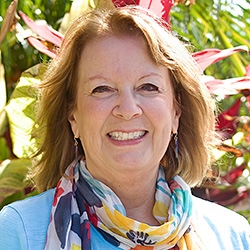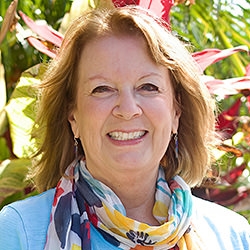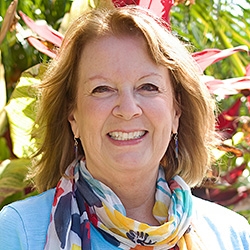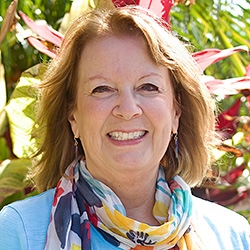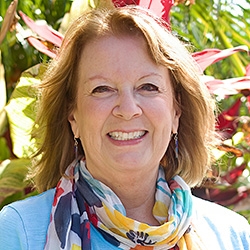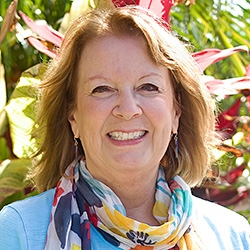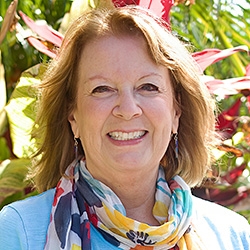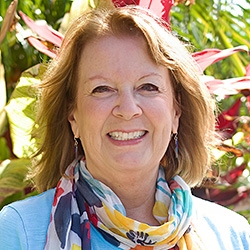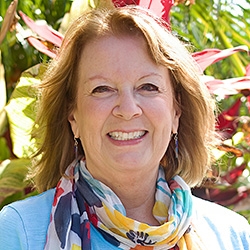
Search Results: war
-
Trainer tip: Beware that your expression of feelings helps you own how you feel, rather than blaming the other person for doing something you see as wrong. Expressing your feelings helps the other person know how deeply this issue affects you. Plus it can bring more clarity and connection to all parties. Read on for more.
-
NVC practice is based on several key assumptions and intentions. When we live based on these assumptions and intentions, self-connection and connection with others become increasingly possible and easy, helping us contribute to a world where everyone’s needs are attended to peacefully.
-
Join Eric Bowers in transforming past relationship pain, coming alive in community and creating thriving relationships. This 12 session Telecourse recording brings together Eric's passions for Nonviolent Communication, Attachment Theory and Interpersonal Neurobiology.
-
Society gives us short-sighted explanations about human nature, life and what’s (un)changeable. The coronavirus pandemic is disrupting that explanation. Our current social order upholds impoverishment, police brutality, and is leading us towards our extinction. Change begins with people mobilizing resources towards a vision that holds systemic care for all, plus engages shared risk and collective action towards that vision.
-
If you’ve ever dreaded attending a meeting – or watched in dismay as your group collapses into conflict – know that a methodology known as Convergent Facilitation offers you possible solutions. It’s based on one simple experience: that people come together at the level of their underlying principles, needs, aspirations, and dreams, not at the level of their surface positions.
Convergent Facilitation is a highly efficient decision-making process developed by Miki Kashtan from the principles of Nonviolent Communication. It enables you to look beneath the surface and find the essence of what’s important to different stakeholders, and bring it together into one set of principles that lead to proposals and ultimately decisions. As a result, it readily produces solutions and decisions that everyone can embrace.
-
October always makes me think about Marshall Rosenberg, the founder of Nonviolent Communication. He was born October 6, 1934. If he were still alive today (he died February 7, 2015), he would be 89 years old!
-
Are you finding yourself grappling with the NVC model despite your familiarity or practice? Do you often feel stuck or find it challenging to make it feel natural or authentic in your interactions?
Let CNVC Certified Trainer, Dian Killian, guide you towards embodying the essence of NVC—a mindset of connection and collaborative engagement. Through her expertise, you'll discover invaluable insights tailored to make your NVC practice truly your own. From uncovering intuitive methods to discern feelings and needs, to seamlessly integrating NVC principles into your everyday speech, Dian empowers you with insider tips for authentic connection.
-
In the face of needs that are still hungry to be satisfied, we can expand our view, plus generate ideas and creativity that can find new paths forward. Try these tips to transform our complaint into commitment for a change in strategy that works with needs...
-
Trainer Tip: When there's conflict if you set the intention to connect and build trust first, you're more likely to move towards resolution. This can be built through offering reflections that captures essence of what's important to each party. Once connection and trust is established, then begin the process of creating strategies and solutions.
-
Asking for help is difficult for many of us, but can yield rich rewards.
-
The heart of the practice of nonviolence is a commitment to live through the powerful combination of compassion, fierceness, and courage, with an uncompromising willingness to stand for truth. Join Miki Kashtan for this exciting and informative course to learn how to practically embrace nonviolence.
-
- Access, follow and train your intuition: how to know without knowing;
- Navigate difficult situations with care for all through an active awareness of your own power, as well as other sources of power in the room;
- Remain aware of who speaks and who doesn’t, of those whose pain is invisible – and what you can do about it;
- Walk towards someone presenting a challenge to a group you are facilitating, while continuing to hold care for the entire group, and more.
-
What does nonviolence have to do with group facilitation?
Miki Kashtan believes that nonviolence is a way of being and living that orients us in all our thoughts, words and deeds toward the integration of truth, love and courage. All nonviolent individual and collective actions are aimed at preserving what serves life and challenging what does not. Facilitation is one clear path for bringing nonviolence to the world!
How can we act now, as facilitators, as if the world of our dreams, the Beloved Community, is already in place?
-
Trainer Tip: Mary explains the NVC principle known as the "protective use of force."
-
In this written transcript of a live presentation, Inbal Kashtan shares how she first became aware of poverty. She explains how empathy is a vital and powerful force for creating peace in our world today, and a powerful means of creating a world that works for all of us.
-
Trainer Tip: Be aware of opportunities to be honest holding the intention to connect with people. If you do this with the elements of brevity, directness, and respect, you can increase your chances of being heard. If they don't like your honesty, consider switching to empathizing with them by listening to their feelings and needs.
-
Trainer Tip: Be aware of opportunities today to choose empathizing over arguing with someone who is angry, and notice how it affects your ability to resolve the situation. Read on for more.
-
Trainer tip: Be aware of your inner jackal chatter today and make a commitment to listen for the underlying needs they are trying to tell you about.
-
Trainer tip: Be aware of times when you are judging others, demanding, making comparisons, or denying responsibility for your actions. Notice how these communication patterns affect your connection with other people.
-
Trainer Tip: Here are four Stages of Emotional Maturity, also known as Stages of Emotional Liberation. Be aware of what stage of emotional maturity you are in today. And, celebrate it.

